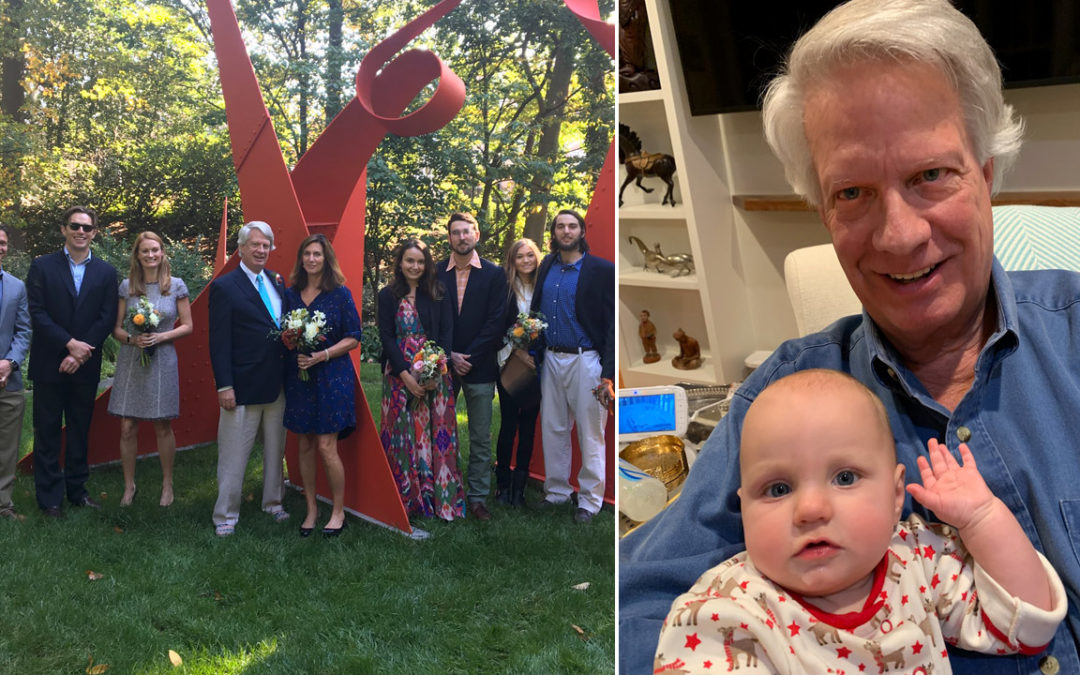
by Robert Bowie, Jr. | Dec 17, 2019 | Featured, Plays, Poetry
Perhaps because I am older, or perhaps because I am now a playwright and a recovering lawyer, I decided I would make a commitment to a more spiritual Christmas this year.
I committed to finding a passage out of the comfortable consumerism, “Jingle Bell Rock” on the radio, Alvin and the Chipmunks and the hula hoop, and into a less self-deceptive and more spiritually aware holiday.
My problem is I excel at self-deception.
In the past, I have always believed that I was sufficiently into the festivities to fool myself, and I would let the transformative spiritual moment gently pass.
No, in truth I am a wizard of self-deception.
I fool myself in little ways all year long as I artfully keep my “spirituality” — like my “modesty“ — at bay.
For example, I have a room right next to my study that contains the framed memorials of the important accomplishments (of which I am so very proud) from my life as a lawyer and playwright.
When I enter this room, I am reminded that I don’t take myself too seriously, because it also contains a sink, a toilet and extra toilet paper. But of course, it is not a private bathroom. If nature calls, our guests are forced to see what I am proud to believe I have made of myself, framed and on the walls when they lock the bathroom door behind them.
I have employed this same gift of willfulness and self-deception when I have prepared myself to let the holidays gently pass by each year.
But as I have said, I think things have changed now that I’m a playwright and recovering lawyer.
I have been forced to see things less as an advocate and more as an observer.
A judge or jury renders a verdict, but there is no redemptive celebration thereafter. Rectifying and resolving social wrongs, if that happens at all, offers no thought of spirituality and in my case, may regrettably explain the bathroom.
But as a playwright, I have come to observe that my plays are meaningless unless the actors commit to giving them life and the audience commits to embracing the performance and the work.
So I have observed that some ethereal things do not come to pass at all unless there is belief, commitment, and then action.
This year, I will find the time for that individual commitment and action on Christmas Day. After I celebrate the joy of being with my family, I will take a walk — perhaps just a little walk — out by myself alone and consider the universe, which I do not understand. I’ll stop for a moment and realize that even if I have no belief in a heaven or a hell, I accept that cold hand of “grace,” which is what so much of religion and spiritual faith is about. And then when I return back home, I’ll try not to see if anyone is locked and reading in the bathroom.
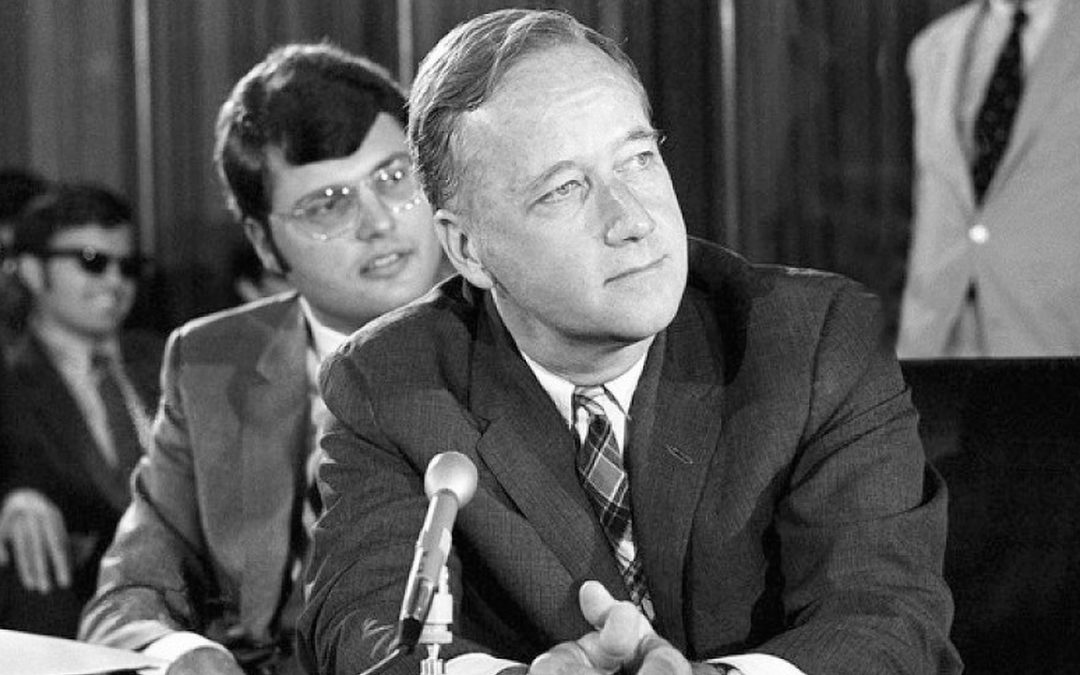
by Robert Bowie, Jr. | Dec 10, 2019 | Featured, Politics
Today, I am mourning a Republican U.S. Senator that I was fortunate to know and serve during the impeachment proceedings of Richard Nixon. I must be wrong.
As the Republican-controlled United States Senate will soon consider impeachment, I have grown horrified by the contrast between what I thought I remembered and what I see today. I must be wrong.
So I went back and reread Senator Charles “Mac” Mathias’s obituary to check my recollection. I will quote the obituary from The New York Times below:
“In a 1974 campaign speech [Mathias] quoted Burke’s 1774 letter to the Electors of Bristol: ‘Your representative owes you, not his industry only, but his judgment; and he betrays instead of serving you if he sacrifices it to your opinion.’”
I thought I remembered that Mathias believed he served the constitution rather than a political party and did not hesitate to practice these beliefs and defend them publicly:
“I’m not all that liberal,” he told The Washington Post in 1974. “In fact, in some respects I’m conservative. A while ago I introduced a bill preserving the guarantees of the Bill of Rights by prohibiting warrantless wiretaps. I suppose they’ll say it’s another liberal effort, but it’s as conservative as you can get. It’s conserving the Constitution.”
I remembered that Mathias exercised these beliefs often at his own expense.
“However he described them, his votes, his vocal unhappiness with the growing conservatism of the Republican Party and his lack of support for Ronald Reagan cost him leadership positions. In 1979, Senator Strom Thurmond maneuvered to block Mr. Mathias from becoming senior Republican on the Judiciary Committee.”
Although he desperately wanted to be the chair of the Senate Judiciary Committee, he saw his responsibilities to serve a greater bipartisan agenda.
“His Senate colleague for many years, Paul Sarbanes, Democrat of Maryland, said Monday that while Mr. Mathias’s ‘most intense critics were within his own party,’ nevertheless ‘Mac commanded enormous respect on both sides of the aisle.’”
Mathias practiced the clear intent of the Constitution, unlike the recent Republican appointees to the Supreme Court who affirmed Citizens United and refused to address the political polarization of gerrymandering.
“Mathias advocated public financing of campaigns and ceilings on contributions (measures enacted the next year). He said that in his 1974 campaign he would reject cash contributions, take no more than $100 from any individual, report every contribution and expenditure”
My recollection was correct.
All that is gone now. The strict constructionist of the Constitution will cite the clear definition of treason, which requires aiding and abetting the enemy at the time of war, and will think nothing of a President and political party that will not impeach a president for turning foreign affairs to his political benefit, who refuses to fight and actually encourages the support and intervention of foreign governments in our elections.
All that is gone now, as our foreign policies, so carefully crafted after WWII to support the allies of freedom, crumble as we abandon the Kurds to Russia, and our allies in South Korea and Japan to the threat of North Korea, as it continues missile testing despite hollow promises to us. And finally, and perhaps most painfully, Europe turns to others as we let NATO and the European Union crumble before our blind eyes.
The Republicans will let the impeachment fail. But if the country gives this president another term, America, a shining “city on a hill,” will be gone as we know it.
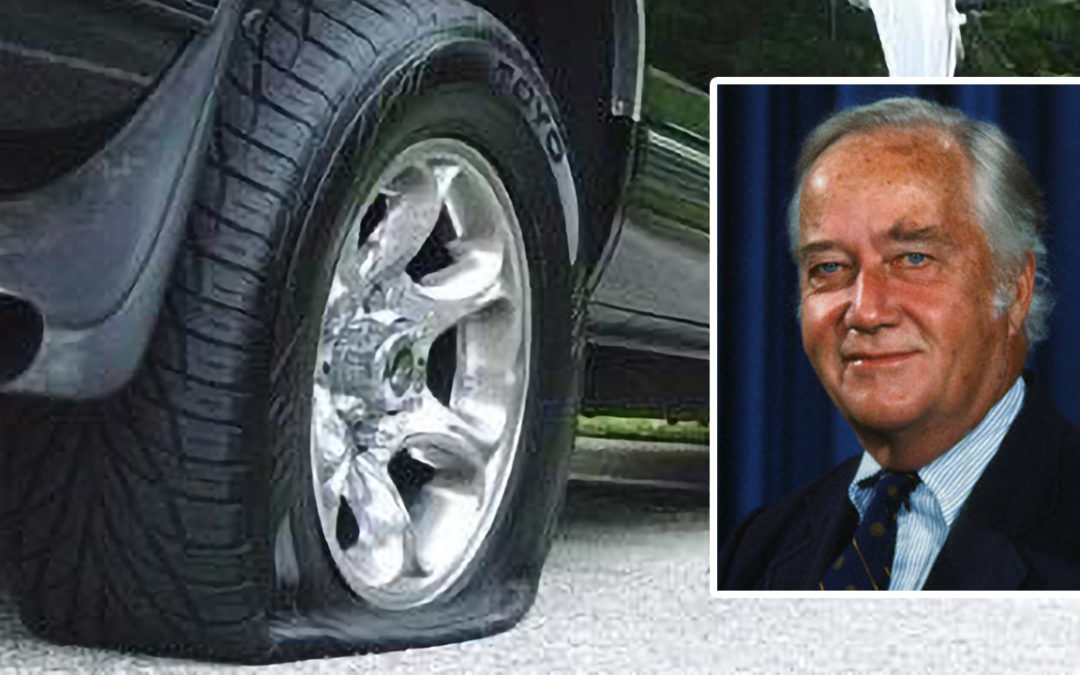
by Robert Bowie, Jr. | Dec 3, 2019 | Featured, Personal, Politics
You can call it “fake news” or the subjugation of truth, but when confronted by self-serving diatribes and obstructionist partisan arguments, I saw several witnesses at the impeachment hearings persist and tell the truth — or at least preserve its credibility — no matter how difficult that was for them.
When I was a driver for U.S. Senator Charles “Mac” Mathias’s (R-MD) during the Watergate proceedings, news and politics were different than today. Credibility was everything.
On TV, Walter Cronkite delivered the truth on the CBS Evening News. He was voted the most trusted man in America.
The newspapers never had that power of personality, but they doggedly stood behind their stories, even when they relied upon undisclosed sources like “Deep Throat.” They knew they were at risk every day.
Credibility sold the news, and advertising, and paid for heavy overhead and lots of investigative reporters.
Today, news sources on the web do not need credibility. They have followers instead.
They are also not at risk because they have few, if any expenses, and are often not even identifiable. Social media is flooded with unverifiable news sources, some of which are paid for by our enemies as they seek to disrupt our country’s elections.
Senator Mathias was from Frederick, Maryland — farm country — two hours west of DC. He was fiercely loyal to his city and his state. He cherished his reputation for integrity and his nickname, “The Conscience of the Senate.”
It was different back then, but it is still the same.
I was driving Mathias when he was summoned by President Nixon to an afternoon rally the next day. Mathias was to be filmed beside Nixon for the evening news that night. Mathias had, in essence, been summoned to give the President an unspoken endorsement in Maryland’s Washington suburbs, in Mathias’s home state.
Maryland is an overwhelmingly Democratic state. Mathias was no fan of Nixon and Nixon knew it, but Nixon was a Republican and so was Mathias.
Credibility was everything to Mathias but he couldn’t say “no” to the president without punishment from his party.
I picked the Senator up at his home that morning and we headed to his scheduled meetings.
The first thing he said to me as he got into the car was, “looks like that tread on the left rear tire is thin.”
After the morning meetings and before lunch, I offered to take the car to get the tire checked, but Mathias said he wanted me inside to record his speech on the handheld tape recorder I always carried with me for such occasions. He made sure he was never misquoted.
After lunch, as he got into the car he pointed and asked me, “You think it looks like that tread is dangerous?”
I insisted that I get the tire checked immediately so we would be on time for the rally.
The Senator thought for a judicious moment. “I think you are right, Bob. Let’s get it looked at.” But as I turned into a filling station he quietly said, “I have always bought my tires up at the Goodyear store in Frederick.”
By the time we got back to Washington, the rally was over. As I let him out of the car that night, he asked me to remind him to send his apologies to the White House.
To maintain credibility in the face of power, persistence may not always offer the opportunity to speak the truth. But at least it’s a statement on its own: the resistance is a placeholder for the truth, and it retains our gravity.
It is different now, but it remains the same.
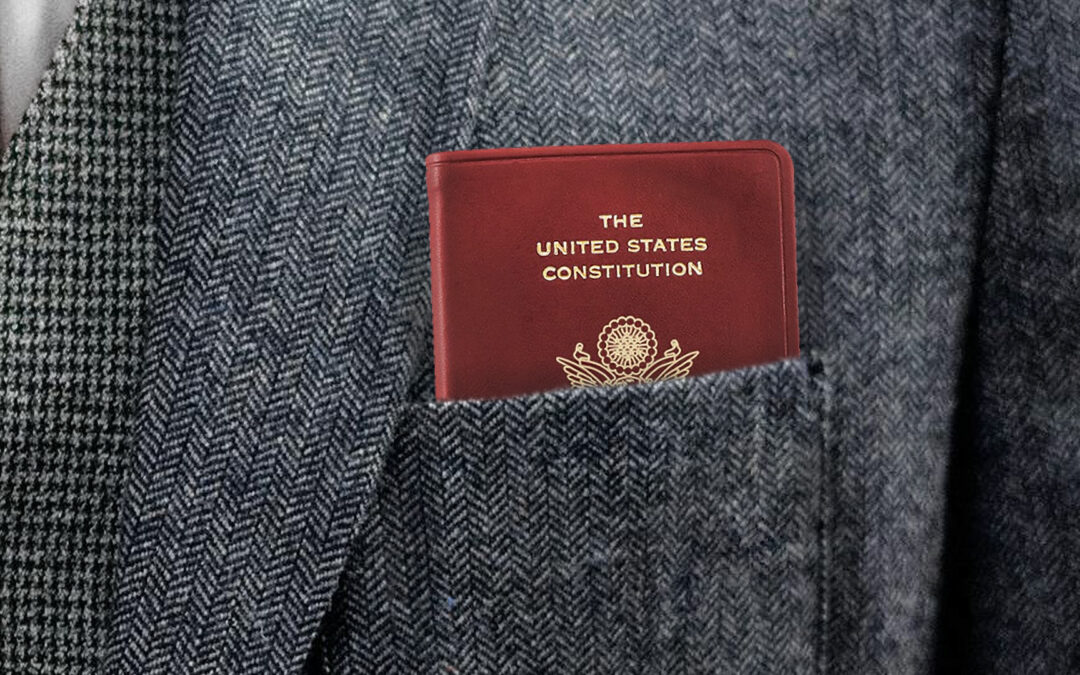
by Robert Bowie, Jr. | Nov 26, 2019 | Featured, Law, Politics
I remember when Congress actually had good manners and I almost got a chance to cite the Constitution in traffic court.
Many years ago, from within a culture of politeness, I watched the U.S. Congress impeachment proceedings of Richard Nixon. Now, 45 years later, this culture of politeness in Congress doesn’t exist, but back then it seemed to have several benefits.
I got a job in the office of Senator Charles “Mac” Mathias (R-MD) as his mail clerk. My “office” was directly behind the wall that separated me from the receptionist and everybody else.
After several months, I got a chance to demonstrate my enthusiasm. The Senator knocked on my door and told me he had a “special assignment” for me.
He told me that there was a lobbyist right on the other side of that wall who was sitting in the receptionist area. The lobbyist had just threatened to pull all of his airline clients out of BWI unless the Senator voted in favor of a bill that would be considered by the Senate that afternoon.
The senator told me to take the lobbyist to the Senate dining room and take detailed notes on what he wanted.
I straightened my tie, went through the door, and introduced myself.
After a brief moment, the lobbyist looked me over and asked me, “What exactly is your job title?”
I proudly told him, “I am the mail clerk!”
He thanked me, declined my invitation to the Senate dining room, and left.
One of the benefits of this culture of politeness was it encouraged good manners without public reprimand.
The Senator eventually took pity on me and I became his driver.
Back then, the Senate was bipartisan and the senators got along. We filled up the back seat with the likes of Kennedy from Massachusetts and Tower from Texas. We all listened to the political news in the car together on WTOP.
Despite often radically different points of view, this civility grew from a collective belief that these representatives were exercising a shared power. It made sense. This responsibility of shared power allowed a culture of compromise and progress that we have not seen since the country has been polarized.
There was a reverence on both sides for the Constitution. Mathias always had a copy in his coat pocket.
No one was immune from this culture, including me. One time as we were headed to Washington from the western part of the state, Mathias leaned over to me, turned down the radio, and said, “We can pick it up a little. You are going to law school. If we get pulled over, you will be able to cite the Constitution to the officer.” Mathias smiled as he patted his coat pocket. “It is illegal to hinder a member of Congress on the way to a vote.”
I never asked him for the chapter and the verse. I just drove a little faster. It just made sense.
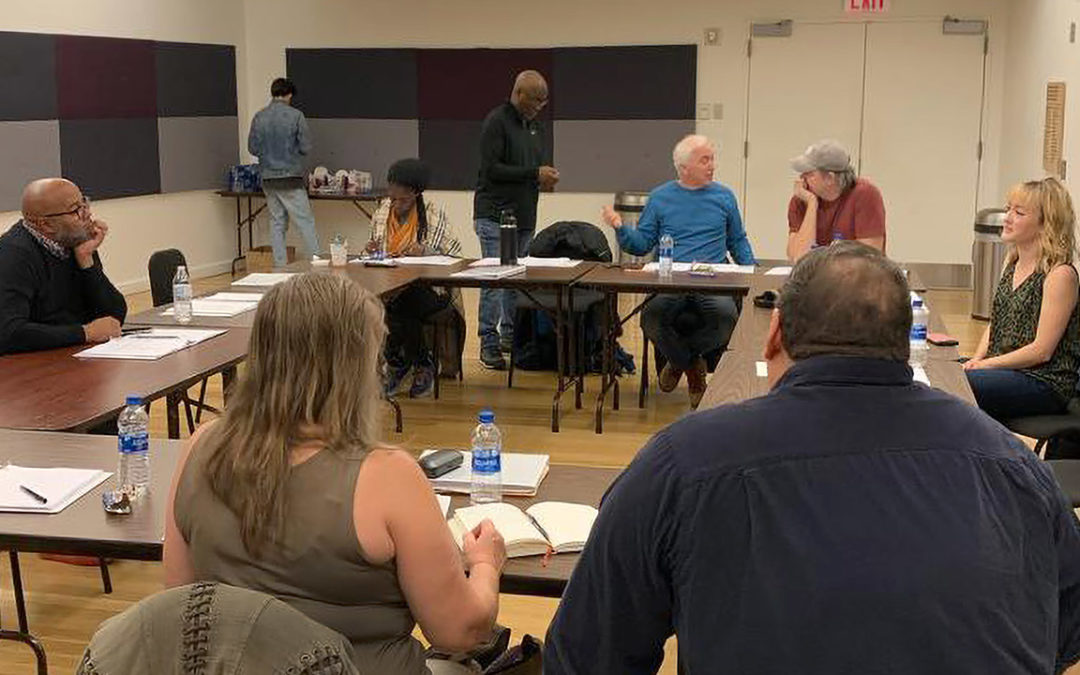
by Robert Bowie, Jr. | Nov 19, 2019 | Featured, ONAJE, ONAJE Update, Politics
Sometimes, it seems as if Amtrak travels through America’s subconscious.
Last Sunday, on a cloudy afternoon, I took the train up to NYC for the “table read” of my new draft of Onaje. I put The New York Times on the seat next to me and looked out at the graffiti on the abutments of the bridges and junked cars in back yards.
We are divided by our politicians, but are we now divided from our children too? I had read about why the “millennials” blame the “baby boomers” for the world they have inherited and had wondered if there was a common beginning to all of this.
The millennials don’t have the ”spoiled child” anger of “sex, drugs and rock & roll” and “never trust anyone over the age of 30,” which was the mantra of my generation. Their anger is the residue of all that.
We were born into the rich, expanding post-war economy. They want a job to pay off the student loans for the education to get the job they never got.
How could this have happened?
To placate us, President Lyndon Johnson, ended the draft. Our parents — all of them — had been drafted and went to war together to defeat fascist nation states and rebuild a capitalist Europe, to allow free trade to rebuild the devastated nations that we had defeated, and then to break down walls to offer freedom for others.
For the college-educated boomers, it had been acceptable to avoid the draft, because we didn’t approve of the war.
Unintentionally, by doing so, we split the nation the millennials inherited into the privileged rich who would not, and the working poor who would fight our future foreign wars and salute our flag, after the privileged draft-dodgers had felt free to burn it.
The thing is, the “privileged” never followed through. After we graduated, the Peace Corps and public service became old news. We had bumper stickers that said: “The One Who Dies With The Most Toys Wins.”
We were too self-obsessed to notice that the seeds which had created WWII were composting here in our country as we let the economics of disenfranchisement grow.
NAFTA would bring those seeds to bloom with immigration reform. It was predestined, as the privileged got richer and the jobs of the working poor left town, and women still remained unprotected ( “Me Too”), and the city slums expanded ( “Black Lives Matter“). The white working poor were easily fanned into racist hate as they were left behind.
It was painfully ironic on Monday, at the reading, when the actors brought the past into the present. They brought to life a play about savage racist riots which happen in 1967, just as the early boomers went off to college.
It was painful to see how the cast of white and black Americans could so brilliantly bring the hate and violence between the races to life, and then break from their characters and become friends so easily and talk and laugh. It stood in stark contrast to the story of the play and to the anger presently in our country, now so divided that even families are unable to communicate.
How could this be? It may be that the actors had a common goal that was bigger than any individual in that room. They needed each other and enjoyed each other as they brought that common goal to fruition.
Perhaps the boomers thought only of themselves. The one percent now has all the toys. In the end, we are what we do, not what we say. We said we were ”peace and love,” but we had no commitment to anything other than to our avarice and greed.
We earned Trump and his bone spurs. He is one of us.
I have provided the names of these wonderful actors. Watch for them on TV and on the New York stages. They are each and everyone of them brilliant: Joe Dellger, C.E. Smith, Tim Rush, Khiry Walker, Adam Couperthwaite, Laura Darrell, Mary E. Hodges, Johnny Shea, and Erin O’Brien.





